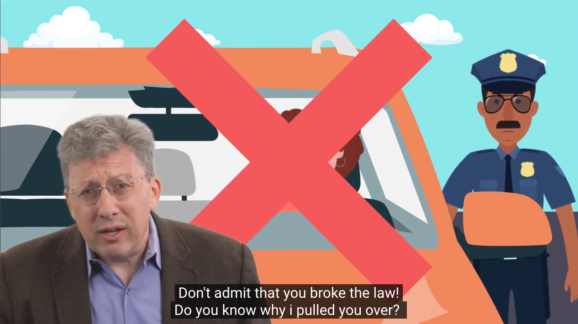News that involves the police is inherently dramatic, and stories about what police officers do regularly make the news—asset seizure of hundreds of thousands of dollars, wrongful shootings of unarmed individuals, hostage situations, and so forth. But interactions with the police are everyday occurrences; they happen to anyone and everyone. There are enough that, if a small percentage go bad, they can add up to a high number of cases of misfortune. Notably, police interactions that are also instances of police abuse and misbehavior often constitute violations of our constitutional rights, but most of them are unlikely to make the front page.
But some do. Consider the recent account of a traffic stop involving the Delaware State Women’s Lacrosse Team. These athletes were traveling home after playing a game against Stetson University. Suddenly, their bus was pulled over by officers in Liberty County, Georgia, allegedly for driving in the wrong lane. What happened next? Officers, without any shred of evidence, tore through the women’s luggage, looking for—they claimed—marijuana, heroin, ketamine, or evidence of “child trafficking.” The deputies brought in drug-sniffing dogs and threw underwear onto the street in a fruitless search for drugs that didn’t exist, intermittently threatening the women with prison sentences.
This humiliating turn of events was, if anything, a good outcome; that is, no evidence of wrongdoing was found and the athletes were eventually told that they were free to go. Every year, government agents do worse: they take and keep billions of dollars through civil asset forfeiture from ordinary Americans who have never been convicted, or even charged with, wrongdoing. And dramatic seizures of tens of thousands of dollars are atypical. The median cash seizure (depending on which state it occurs in) currently amounts to between a few hundred to a few thousand dollars. A cash seizure of that size is likely to be a terrible blow to the welfare of the everyday American.
Moreover, most cash seizures go uncontested. Anyone subject to seizure has the formal opportunity to contest it and recover their property, but the average American, as a practical matter, lacks the resources to recover his or her stuff. After all, if your lawyer costs $300 an hour, it’s positively irrational to retain counsel if the property at issue is worth $1,000. What happens in the real world is that, around 80 percent of the time the government simply wins by default, as the person who had his or her property seized just doesn’t show up. Sadly, due process of law in such cases is, more or less, a myth.
We want to empower everyday Americans to be able to protect their rights, themselves, and their property from wrongful seizure and forfeiture. In our new video, we outline what to do in order to avoid police mistreatment. Those who want more information on this topic should also look at our recent publication, “They’re Taking My Stuff! What You Need to Know about Seizure and Forfeiture.”
Seizure and forfeiture aren’t going away. But law-abiding citizens who exercise forethought and good judgment can increase their chances of avoiding misfortune in this area.



